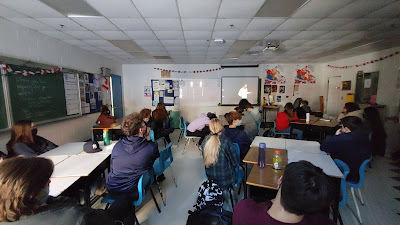06-30-2020 - Privacy Concerns for Teens - Self Study Entry 4

Should we be more concerned for teens? Our kids are constantly connected and they are searching for privacy. But not in the ways that I thought. According to Danah Boyd's book It's Complicated (Boyd, 2014), "As teens encounter particular technologies, they make decisions based on what they’re trying to achieve." (Boyd, 2014, p.65) It is pointed out that teens are making decisions about how to post and trying to create a version of privacy that is different from past convention. Our default settings are no longer set to private. "When participating in networked publics, many participants embrace a widespread public-by-default, private-through-effort mentality." (Boyd, 2014, p.62) For teens, that means that the parts of their lives that they want kept secret will remain that way, unless they make mistakes. And mistakes do happen. Young people are sharing compromising images of themselves, and the intent would be for those to remain private - between them a...

